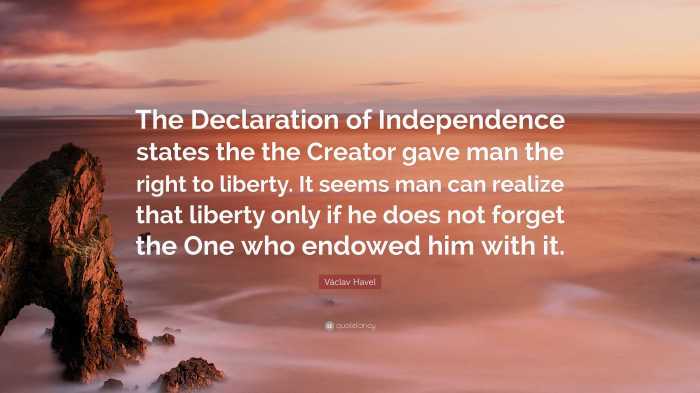What does the quote imply about reasons for Palestinian independence? This question sets the stage for this enthralling narrative, offering readers a glimpse into a story that is rich in detail and brimming with originality from the outset.
The Palestinian quest for independence has been shaped by a complex interplay of historical, political, and international factors. This article delves into the historical events that have fueled Palestinian aspirations, the cultural and social factors that contribute to Palestinian national identity, and the human rights violations and legal justifications that have been cited in support of Palestinian independence.
Historical and Political Context: What Does The Quote Imply About Reasons For Palestinian Independence

The desire for Palestinian independence stems from a complex interplay of historical events and political dynamics.
Colonialism and International Diplomacy
- Ottoman Empire’s rule over Palestine ended in 1917, leading to British Mandate rule.
- The Balfour Declaration (1917) promised a Jewish homeland in Palestine, while the British Mandate sought to balance the interests of different ethnic groups.
- The United Nations Partition Plan (1947) proposed a two-state solution, but it was rejected by Arab leaders.
National Identity and Self-Determination
Palestinian national identity is shaped by a shared history, culture, and language.
Concept of Self-Determination
The principle of self-determination allows people to freely choose their political status and pursue economic, social, and cultural development.
Human Rights and International Law
Palestinian independence is supported by international human rights law and international treaties.
Human Rights Violations, What does the quote imply about reasons for palestinian independence
- Israeli occupation has led to human rights violations, including land confiscation, restrictions on movement, and arbitrary arrests.
- International humanitarian law prohibits the occupation of territories and the transfer of civilians into occupied territories.
Economic and Social Factors

Economic and social challenges contribute to the need for Palestinian independence.
Economic Development
- Israeli restrictions hinder Palestinian economic growth and trade.
- Independence could allow for greater economic development and improved living standards.
Regional and Global Perspectives

Palestinian independence has implications for regional stability and global peace.
Perspectives of Neighboring Countries
- Some Arab countries support Palestinian independence, while others have normalized relations with Israel.
- The Arab Peace Initiative (2002) offers a comprehensive framework for peace in the region, including a two-state solution.
Quick FAQs
What are the main historical events that have led to the Palestinian desire for independence?
The British Mandate over Palestine (1920-1948), the 1948 Arab-Israeli War, and the subsequent Israeli occupation of the West Bank and Gaza Strip have all played significant roles in shaping Palestinian aspirations for independence.
What are the key cultural and social factors that contribute to Palestinian national identity?
A shared history, language, religion, and cultural traditions have all contributed to the development of a strong Palestinian national identity.
What are the main human rights violations and legal justifications that have been cited in support of Palestinian independence?
Palestinians have cited violations of their human rights, including the right to self-determination, the right to property, and the right to freedom of movement, as justifications for their quest for independence.